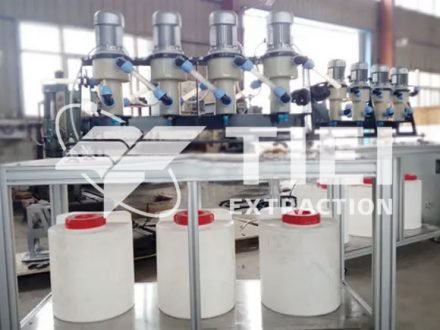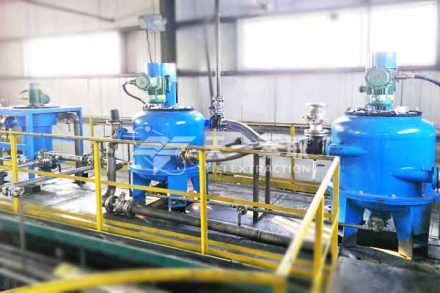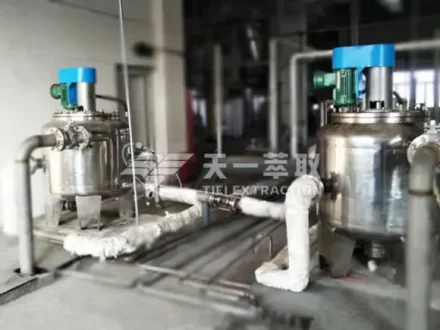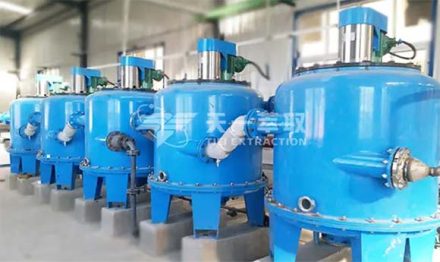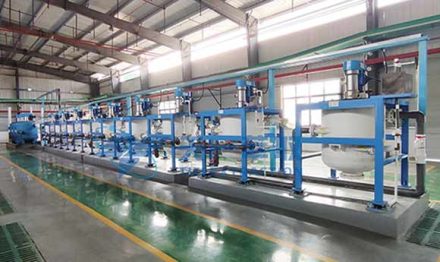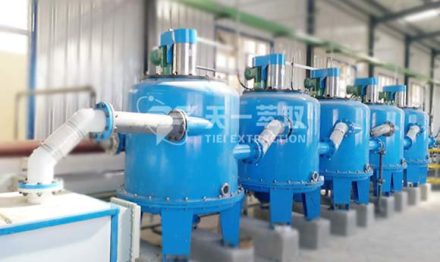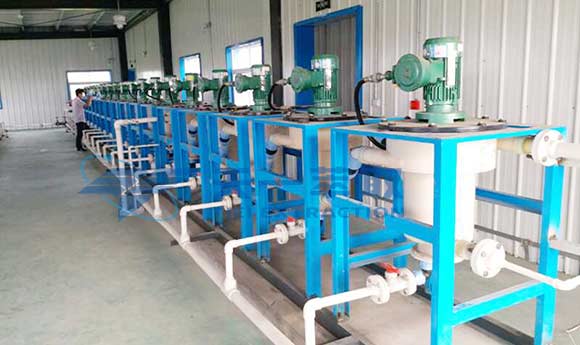
In hydrometallurgical industry, there are many methods for extracting metallic elements. Among them, the sulfuric acid and chlorination methods are commonly used in the production and processing of titanium dioxide. However, the process of extracting titanium from hydrochloric acid media is currently a research focus. Numerous experiments have been conducted in the relevant industry on the selection of extractants for extracting titanium from hydrochloric acid media. Comparative data shows that traditional trialkylphosphine oxide extractants have poor extraction effects, slow two-phase separation, and high costs. However, using tributyl phosphate as an extractant and adding n-decanol as a composite extractant has shown significant results in extracting titanium from hydrochloric acid media.
Operation of centrifugal extractor to extract titanium in hydrochloric acid medium
Typically, an experimental centrifugal extractor is used for titanium extraction during process data analysis. Tiei Extraction CWL50-M centrifugal extractor is used, using tributyl phosphate and n-decanol as a composite extractant and industrial sulfonated kerosene as the diluent. After adjusting the extractant relative to the feed liquid, the light and heavy phases are injected into the mixing zone formed between the centrifugal extractor's drum and shell in a specific ratio. The rotation of the drum rapidly mixes and disperses the two phases, completing the mixing and mass transfer process. The mixed liquid enters the drum under the action of the vortex disk. Under the influence of centrifugal force, the separated two phases ultimately pass through their respective weir plates into the collection chamber and are then drawn out of the machine via separate pipes, completing the two-phase separation process.
Detailed experimental data reveals that the extraction rate of titanium from hydrochloric acid using a tributyl phosphate and n-decanol composite extractant increases with increasing concentrations of tributyl phosphate, n-decanol, and chloride ions. The extractant's extraction performance for high-concentration titanium is significantly superior to that for low-concentration titanium, facilitating the extraction and separation of high-concentration titanium from hydrochloric acid. Furthermore, n-decanol is an effective and selective extractant for titanium in hydrochloric acid, exhibiting synergistic extraction properties for both high and low concentrations, and employing different extraction methods.
The application of centrifugal extractors is no longer limited to experimental operations in hydrometallurgy. Based on experimental data, technicians can develop industrial equipment selection plans for customers to achieve industrial production, replace traditional mixer settler, and realize large-capacity, low-consumption industrial processes.
Email: sales@tieiextraction.com
Whatsapp: +86 19069612820

